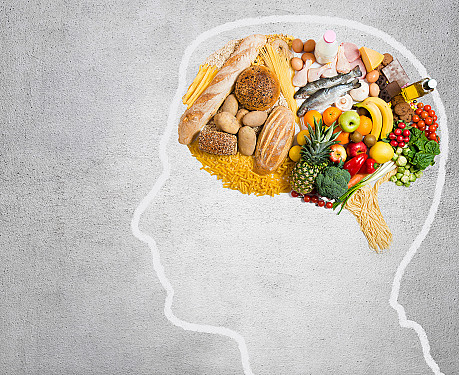Maintaining optimal brain health is essential for overall well-being and cognitive function. While certain foods can nourish and support brain health, others may have detrimental effects. Let’s delve into nine common foods that have the potential to harm your brain and how to make healthier choices for cognitive vitality.
1. Sugary Treats:
Foods high in refined sugars, such as candies, pastries, and sugary beverages, can lead to spikes and crashes in blood sugar levels. Over time, excessive sugar consumption may contribute to inflammation in the brain and impair cognitive function. Opt for natural sweeteners like honey or maple syrup and limit intake of processed sugary treats.
2. Trans Fats:
Trans fats are artificially produced fats found in many processed and fried foods, including packaged snacks, fast food, and baked goods. Consuming trans fats has been linked to inflammation, oxidative stress, and an increased risk of cognitive decline. Choose foods rich in healthy fats, such as avocados, nuts, seeds, and olive oil, to support brain health.
3. Processed Meats:
Processed meats like bacon, sausage, and deli meats are often high in sodium, saturated fats, and preservatives. Research suggests that regular consumption of processed meats may be associated with a higher risk of cognitive impairment and neurodegenerative diseases. Opt for lean protein sources like poultry, fish, tofu, or legumes instead.
4. Artificial Sweeteners:
While marketed as a low-calorie alternative to sugar, artificial sweeteners like aspartame and saccharin may have negative effects on brain health. Some studies suggest that artificial sweeteners may disrupt the gut-brain axis, leading to changes in appetite regulation and metabolic function. Choose natural sweeteners or moderate consumption of sugar-free products.
5. Alcohol:
Excessive alcohol consumption can have detrimental effects on brain health, including impaired cognition, memory loss, and an increased risk of neurodegenerative diseases like dementia. Limit alcohol intake to moderate levels, or consider abstaining altogether to protect your brain health.
6. High-Sodium Foods:
Foods high in sodium, such as processed snacks, canned soups, and fast food, can contribute to hypertension and cardiovascular disease, which are risk factors for cognitive decline. Choose fresh, whole foods and flavor meals with herbs, spices, and citrus juices instead of salt.
7. Fried Foods:
Fried foods like french fries, fried chicken, and potato chips are often cooked in unhealthy oils and contain high levels of trans fats and saturated fats. Regular consumption of fried foods may increase inflammation in the body and negatively impact brain health. Opt for baked, grilled, or air-fried alternatives to reduce exposure to harmful fats.
8. High-Mercury Fish:
Certain types of fish, such as swordfish, king mackerel, and shark, may contain high levels of mercury, which can be toxic to the brain and nervous system. Choose low-mercury fish options like salmon, sardines, and trout, which are rich in omega-3 fatty acids and beneficial for brain health.
9. Processed Foods:
Processed foods like microwave meals, instant noodles, and snack bars often contain additives, preservatives, and artificial flavors that may have negative effects on brain function. Focus on whole, nutrient-dense foods like fruits, vegetables, whole grains, and lean proteins to nourish your brain and body.
Conclusion:
While certain foods can harm brain health, making informed dietary choices can help protect cognitive function and promote overall well-being. By avoiding or limiting consumption of sugary treats, trans fats, processed meats, artificial sweeteners, alcohol, high-sodium foods, fried foods, high-mercury fish, and processed foods, you can support optimal brain health and cognitive vitality. Instead, prioritize a balanced diet rich in whole, nutrient-dense foods to nourish your brain and thrive at every stage of life.
Source- timesnownews.com



